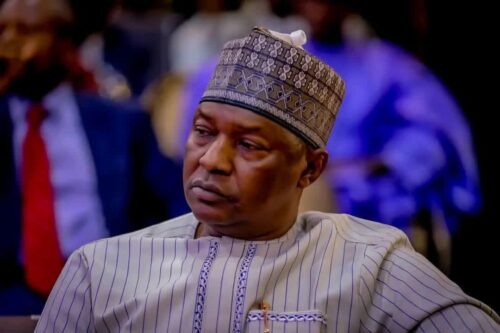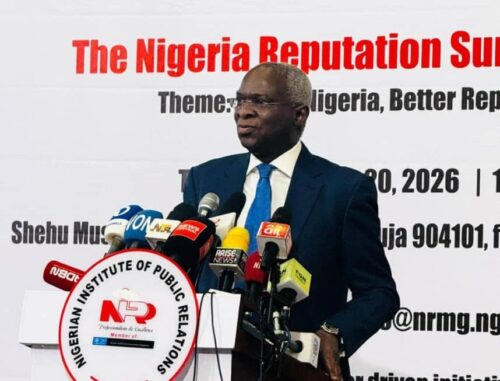The Nigeria Labour Congress (NLC) issued a stern warning on Monday against any attempts to suppress the fundamental right of Nigerians to express their views, particularly in light of the planned nationwide protests.
The NLC emphasized the importance of upholding citizens’ rights to voice their grievances and instead called on the government to engage with the protesters in a constructive manner.
The labour union also directed a message to President Bola Tinubu, urging him to listen to the cries of Nigerians who are suffering from hunger and widespread hardship across the country.
The NLC’s statement comes as a section of Nigerians has been mobilized to embark on nationwide protests starting August 1, using the hashtags #TinubuMustGo and #Revolution2024.
However, the Presidency has responded by describing such calls as treasonable. In a recent statement, the Special Adviser to the President on Information and Strategy, Bayo Onanuga, accused the presidential candidate of the Labour Party, Peter Obi, and his supporters of spreading the hashtags.
Onanuga alleged that the sponsors of the protests are not democrats but rather anarchists, in a lengthy tweet published on his X account on Saturday.
“If they understand the meaning of their hashtags, they will realise they are clarion calls for treason. Wanting to end an elected government is high treason. Wanting revolution is a call for a coup d’etat, which is also high treason,” the presidential aide said.
The NLC, however, said the government should not engage in a “war-war” situation with Nigerians but to negotiate.
In a statement on Monday, the NLC President, Joe Ajaero, said, “As the date for the widely reported national protest looms, the Nigeria Labour Congress urges President Bola Ahmed Tinubu to invite the leadership of the protest movement for discussions on their grievances.
“The truth is that millions of Nigerians are angry about the state of the national economy. A situation where most Nigerian families are forced to eat one miserable meal a day and eating from the dustbin beckons for serious intervention by the government.”
Ajaero referenced a recent country living standards index assessment by the National Bureau of Statistics, which established that about 133 million Nigerians lived below the extreme poverty line.
He said, “When this statistics is added to the millions that are being recruited into the armies of the unemployed and under-employed Nigerians, one can easily situate the hardship, pain, frustrations and despair that many Nigerians are going through right now.
“The truth is that Nigerians have been hard pushed and super-pressed right against the walls of deep deprivation and acute want.
“It is, therefore, condescending and dismissive to describe the daily brutish ordeal that Nigerians are going through as a sponsored political dissent.”
Meanwhile, the Federal Capital Territory Commissioner of Police, Bennett Igweh, has called on the residents and indigenes not to partake in the planned nationwide protest.
The FCT police boss, speaking with journalists in Abuja, on Monday, urged the residents to shun the protest.
He stated that the police had made significant efforts to ensure security in the FCT, adding that the protest could jeopardise it.
“I want to appeal specifically to the residents and indigenes and everybody that is in FCT. Please, lions do not destroy their dens. You cannot see a lion that destroys its den, no. I would not like you to join this protest. I plead with you because we have suffered to ensure your safety.
“We have fought those people outside Abuja, we have been to Kaduna, Nasarawa, Niger to fight them (criminals), so that you can be safe. I have lost men. Last week alone in Gidango, I lost two policemen. The other day, I lost two again. Let our loss pay for the protest. I want to plead with you.
“We don’t need you to be in the streets before somebody will say he is trying the police might. Or you will say, you will do this, you will do that. Please, please, don’t destroy where you are living.”
Igweh said the government was doing its best by providing good roads among others.
He said, “If you check, the government has provided good roads. Whether it’s from the Minister of the FCT or the President, check the roads in FCT. From Wuse to anywhere you can check, even in the hinterlands.
“They are trying their best. I don’t need to talk to anybody, but I’m saying it because we have been in the FCT. We know when there are changes. There are changes now in FCT.
“And we don’t want miscreants to come from outside the FCT and start destroying them. We will go back to square one where we were before. I plead, I beg of you, do not join this protest.”
Also on Monday, the Chairman of the Gombe Network of Civil Society Organisations, Ibrahim Yusuf, said his members were not part of the planned protest in the country.
He then called for the reliefs promised by the President, noting it was yet to arrive in the state.
Yusuf, speaking at the Gombe State House of Assembly during the public hearing on the state Social Investment Programme Agency and Persons with Disabilities Protection and Establishment of Commission and other related matters bills, lamented the hardship in the country.
He, however, said, “We are not part of the protest. The truth is, there are things we need to acknowledge and confront. The majority of the messages I receive are requests for assistance because people are struggling with hunger and anger.
“That’s why they’re waiting for action. While the Federal Government has distributed palliative items to the state governments, we haven’t seen any evidence of this in Gombe State. We must hold our leaders accountable for addressing the grievances of the protesters.”
Speaking on the distribution of fertilisers, he said the President directed that 50 per cent of it should go to a specific group, lamenting that, “We’ve only seen a select few with access to these resources. The truth is, this system needs to change.”
Speaking earlier, the Attorney-General and Commissioner for Justice, Zubairu Umar, said following the change in the situation, the government was now obliged to feed its citizens, stressing that the responsibility of the government was to create an enabling environment.
“We are in a dire situation. Much as we agree that the whole idea of government is the protection of lives and property and the well-being of people, the government is not supposed to be the one to feed you.
“It’s not the responsibility of the government; you are to look for food by yourself. All the government needs to do is to give you an enabling environment.
“Unfortunately, in Nigeria, that’s not happening. Things are not happening the way they should and circumstances have made the situation so bad that the government will have to intervene.”
In his welcome address, the Speaker of the state House of Assembly, Abubakar Luggerewo, said the bill was presented to the Assembly as an executive Bill.
He considered it timely, due to the current economic hardship faced by not only citizens of Gombe State but Nigerians in general.

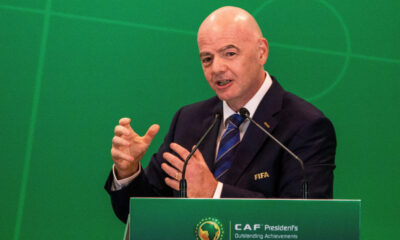
 SPORT3 days ago
SPORT3 days ago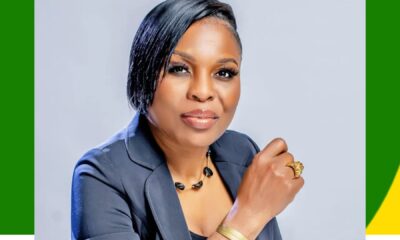
 BIG STORY3 days ago
BIG STORY3 days ago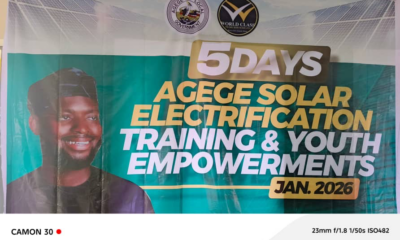
 POLITICS3 days ago
POLITICS3 days ago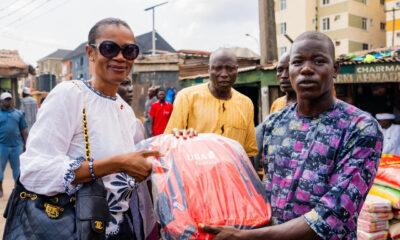
 BUSINESS3 days ago
BUSINESS3 days ago
 NEWS3 days ago
NEWS3 days ago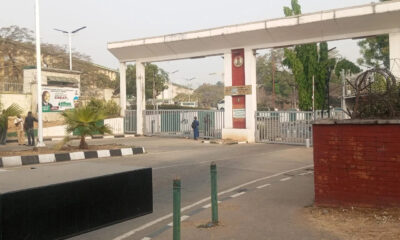
 BIG STORY3 days ago
BIG STORY3 days ago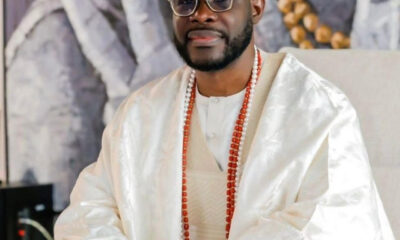
 NEWS22 hours ago
NEWS22 hours ago
 BIG STORY2 days ago
BIG STORY2 days ago


















